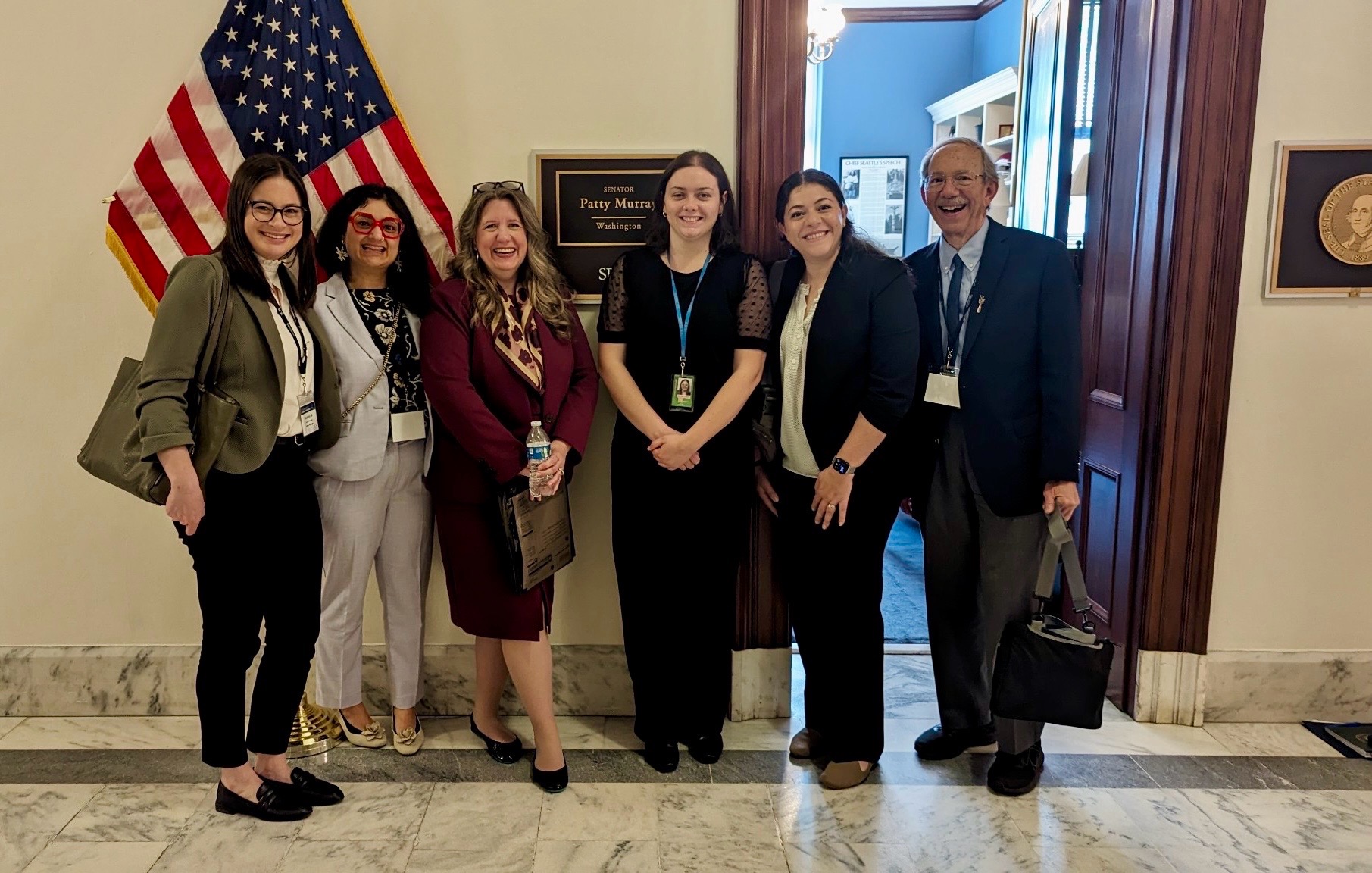

Advocating for patient access
 As part of the American College of Rheumatology's Advocacy Leadership Conference, UW rheumatologists joined over 100 rheumatologists from around the country to meet with legislators in Washington, D.C. to advocate for Medicare reforms to better support physicians and patients.
As part of the American College of Rheumatology's Advocacy Leadership Conference, UW rheumatologists joined over 100 rheumatologists from around the country to meet with legislators in Washington, D.C. to advocate for Medicare reforms to better support physicians and patients.
Rheumatology faculty Namrata Singh, Mark Wener, Kori Dewing and fellows Kaia Barth and Dominique Feterman Jimenez met with staff from Washington Senators Patty Murray and Maria Cantwell's offices as well as staff from three representatives from Washington.
Medicare impacts
Under the current system of Medicare funding, there are across-the-board cuts each year to reimbursements to physicians treating Medicare patients.
This instability has two major impacts: practices have to squeeze more and more patients into the daily schedule, often leaving both physicians and patients dissatisfied; or practices opt out of the Medicare payment system altogether and only accept private insurance or cash for services.
Ultimately, providers feel burnout and patient access is at risk. This leaves the most vulnerable Americans, including seniors, the disabled, and those living in underserved communities disproportionately affected and with few options for medical care.
Reforms
Our rheumatologists met with their representatives to advocate for two pieces of legislation to combat this.
First, the Strengthening Medicare for Patients and Providers Act would ensure that provider funding for treating Medicare patients keeps up with inflation. Currently, physicians are the only healthcare sector that does not receive an inflation-linked increase in Medicare payments.
Second, the Provider Reimbursement Stability Act would reduce the impact of budget neutrality requirements on physician funding. Medicare's current policy of budget neutrality mandates that any estimated increases of $20 million or more to the Medicare Physician Fee Schedule (MPFS)—created by upward payment adjustments or the addition of new procedures or services—must be offset by cuts elsewhere. Therefore, each time a procedure code or other service is reviewed and updated to reflect the modern (higher) value, the conversion factor is cut to offset that increase.
The Provider Reimbursement Stability Act raises the budget neutrality threshold from $20 million to $53 million, more than doubling the amount of new spending in the MPFS before budget neutrality requires cuts.
Together, these bills would create a more stable and supportive financial structure for physicians, and better ensure access for Medicare patients.